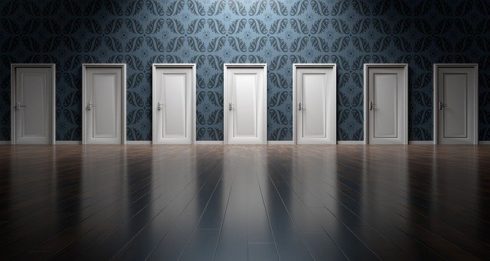
A recent Zoom meeting saw Catchpoint founder and CEO Mehdi Daoudi sitting in the garage of his Los Angeles home, far from his New York City offices, explaining to me that’s where he and his early team built their first server on the way to building out a very successful monitoring enterprise.
He was in his garage, of course, because the novel coronavirus pandemic sweeping the globe has forced non-essential offices to close down (yet no one likes to think of him/herself as ‘non-essential’). We discussed how, in a strange way, we find ourselves more productive when working from home because there’s not the steady drumbeat of distractions you find in an office environment.
RELATED CONTENT:
Developers take on COVID-19 with open-source projects, hackathons
Fear of COVID-19 has tech conferences retreating to online events
And that also gives us more time to think about things like the opportunities this drastic change in how we live and work will create.
“Things that were important yesterday are not important anymore,” he said. “So what’s going to be important two years from now, a year from now. Some folks believe that we’ll go back to the December 2019 way of doing things. I don’t. I told my leadership team, for example, we need to prepare for remote work for a long period of time, and perhaps it might be permanent for the next 24 months, because this [virus] is going to come in waves. And even if things come back to normal, do you really think people are going to get back on the [Long Island Rail Road] from Long Island to New York at 8 o’clock in the morning, with 20 million other people in the subway? People are going to be scared for a very long time.”
We discussed similarities to the September 2001 terror attacks on America, and what it did to the airline industry, as an example. It took quite a while for people to feel safe getting on airplanes again, and that was only after we were required to take our shoes off, not carry liquids onto flights and TSA Pre-Check became a thing.
In the aftermath of this pandemic, things assuredly will not be the same, no matter how you look at it. Is this the end of restaurants, or will it just be takeout or DoorDash and GrubHub? Already, restaurants are thinking inside the takeout box, offering cupcakes and various toppings you can use to create your own variations, deconstructed pizzas you can assemble at home. Some companies are even delivering cocktail ingredients to enhance the at-home dining experience.
And today, we do virtual happy hours. “As long as you’re not drinking by yourself, that’s the important thing,” Daoudi said, laughing. But if I’m sitting in my basement drinking while looking at a friend in Philadelphia drinking, I’m not sure that’s not drinking alone. (Since the call, I’ve brought this up with friends, who ALL say virtual happy hours are most definitely NOT drinking alone! So there you have it.)
So, what will the world look like in the aftermath of COVID-19? And what new software- and technology-based solutions arise to make life in that new world better?






